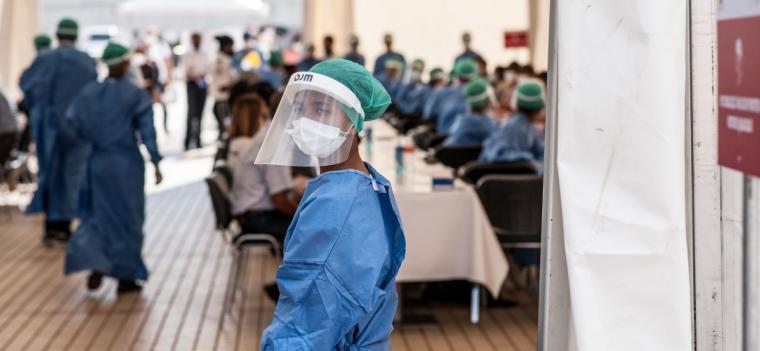News
- Despite the critical role energy plays in enabling health services, many facilities in rural developing environments still suffer from energy poverty.
- Solar-plus-storage units can boost electricity reliability at grid-connected hospitals, complement diesel generators to create affordable hybrid systems at off-grid sites, and provide reliable stand-alone generation at rural locations.
Despite the critical role energy plays in enabling health services, many facilities in rural developing environments still suffer from energy poverty. The surge of a novel coronavirus places additional urgency for cooling systems to store vaccines when they do become available.
This increase in energy demand from additional cooling volumes for stationary refrigeration in distribution hubs, health facilities, and storage facilities will further strain existing limited cold chain capacities in low-income countries. In addition, the amount of cooling required in refrigerated vehicles to transport these vaccines will also grow significantly.
However, this urgent requirement can also provide an opportunity to address cold chain reliability for future health needs, provide energy access to critical services, mainstream energy efficient and solar-based technologies, and lay the ground for a sustainable economic recovery after the immediate crisis has passed. Solar-plus-storage units can boost electricity reliability at grid-connected hospitals, complement diesel generators to create affordable hybrid systems at off-grid sites, and provide reliable stand-alone generation at rural locations. And the World Bank and ESMAP’s Efficient, Clean Cooling Program are already acting upon this challenge.
ESMAP’s Efficient Clean Cooling Program was established in 2019 to accelerate the uptake of sustainable cooling solutions, including refrigeration and cold chain in developing countries. In parallel, efforts are underway to mobilize donor funds to support governments—mostly in Sub-Saharan Africa—to respond to COVID-19 by rapidly electrifying health facilities with distributed solar PV/battery solution, including the provision of off-grid solar products and associated solar refrigeration to safely chill vaccines all the way to village clinics.
